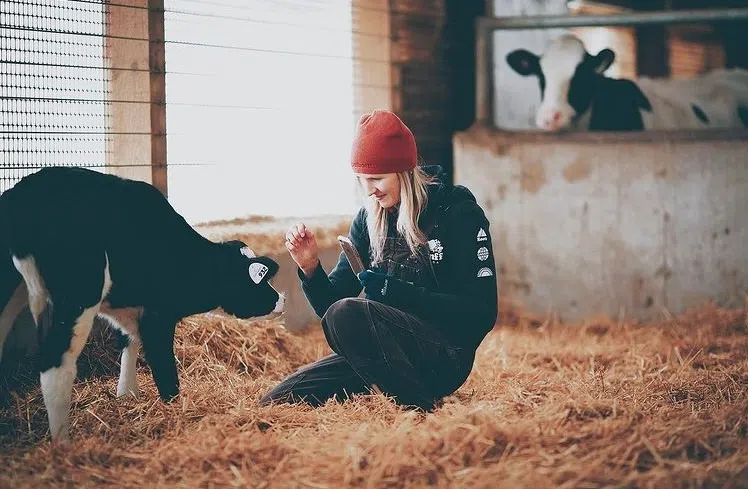A local advocate for farmers’ mental health has been named as a 2026 Nuffield scholar, and is preparing to launch a major study on how farmers handle and process grief.
Kristen Kelderman, a Napanee native, is preparing for the start of her two-year study in January. This study will be focused specifically on identifying differences in how farmers process and cope with grief compared to the general population, and how those differences impact them.
Kelderman has a history of working with farmers. Raised on a farm in Napanee, she earned her master’s degree in Psychology and Neuroscience, and now leads training and community engagement initiatives focused on farm wellness.
In an interview with Quinte News, she said that farmers are facing a long line of stress factors and challenges to their mental health, and that the combined effect of those stresses can be extreme.
“Think of it if you start out with a whole piece of cheese, and every little piece of stress takes from that piece of cheese,” said Kelderman. “Slowly, all of that stress starts to pull away from that piece of cheese until you’re left with what you may consider a Swiss piece of cheese. It doesn’t have that structure, it doesn’t have that that support, that it needs to be able to be resilient.”
Some of those stress factors that have already been identified can include crop failure, livestock losses, financial uncertainty, drought, climate change, and isolation.
While farmers are facing significant stress, another problem facing farmers is a reluctance to seek help with the mental health challenges they’re facing. Farmers report higher than average rates of anxiety, depression and suicide, but are also less likely to seek help.
“The historic stereotype has been that farmers, they’re tough, they’re resilient, They don’t complain, they’re fixers,” said Kelderman. “When they’re feeling uncertain about their emotions, their feelings, the experiences that they’re having on a personal level, if they can’t fix it, well, there must be something wrong with them, right? And when we internalize those types of thoughts and feelings, that can also kind of add to that stigma.”
This won’t be the first study to look at how farmers are handling mental health challenges. The University of Guelph previously identified that farmers were suffering from mental health challenges at a higher rate than the average Canadian during a natural farmer’s survey.
Kelderman’s planned study has a global reach. Besides visiting farms across Canada, she plans to travel to Mexico, Australia, Germany, the Netherlands, the United Kingdom, South Africa, and Switzerland. While Nuffield is providing the majority of funding Kelderman needs, she also plans to do some fundraising along the way to make up the rest of what she needs.
While the study will be looking for new ways to address the mental health needs of farmers, Kelderman also stressed that there are resources available today to help farmers in need. The National Farmer Crisis Line at 1-866-327-6701 offers 24/7 confidential support. For more long-term support, the Ontario Farmer’s Wellness Initiative can be reached by phone at 1-866-267-6255, and can connect farmers in need with mental health resources. Both services are staffed with mental health experts who are agriculturally informed and can help farmers with challenges unique to them.

